| Main | Topics and categories | Tasks and projects |
The Politics portal
Politics (from Ancient Greek πολιτικά (politiká) 'affairs of the cities') is the set of activities that are associated with making decisions in groups, or other forms of power relations among individuals, such as the distribution of resources or status. The branch of social science that studies politics and government is referred to as political science.
It may be used positively in the context of a "political solution" which is compromising and nonviolent, or descriptively as "the art or science of government", but also often carries a negative connotation. The concept has been defined in various ways, and different approaches have fundamentally differing views on whether it should be used extensively or in a limited way, empirically or normatively, and on whether conflict or co-operation is more essential to it.
A variety of methods are deployed in politics, which include promoting one's own political views among people, negotiation with other political subjects, making laws, and exercising internal and external force, including warfare against adversaries. Politics is exercised on a wide range of social levels, from clans and tribes of traditional societies, through modern local governments, companies and institutions up to sovereign states, to the international level.
In modern nation states, people often form political parties to represent their ideas. Members of a party often agree to take the same position on many issues and agree to support the same changes to law and the same leaders. An election is usually a competition between different parties.
A political system is a framework which defines acceptable political methods within a society. The history of political thought can be traced back to early antiquity, with seminal works such as Plato's Republic, Aristotle's Politics, Confucius's political manuscripts and Chanakya's Arthashastra. (Full article...)
Selected article
.svg.png.webp)
The League of Nations was an international organization founded after the First World War at the Paris Peace Conference in 1919. The League's goals included disarmament; preventing war through collective security; settling disputes between countries through negotiation and diplomacy; and improving global welfare. The League was a government of governments, with the role of settling disputes between individual nations in an open and legalist forum. The League lacked an armed force of its own and so depended on the Great Powers to enforce its resolutions, which they were often very reluctant to do. The League ultimately proved incapable of preventing aggression by the fascist powers in 1930s. The onset of the Second World War made it clear that the League had failed in its primary purpose—to avoid any future world war. The United Nations effectively replaced it after World War II and inherited a number of agencies and organisations founded by the League.
Featured picture

The resignation letter of U. S. President Richard M. Nixon on August 9, 1974 during the Watergate scandal.
 Featured lists -
Featured lists -
Selected quote
Selected biography
Hammurabi (/ˌxæmʊˈrɑːbi/; Akkadian: 𒄩𒄠𒈬𒊏𒁉 Ḫâmmurapi; c. 1810 – c. 1750 BC), also spelled Hammurapi, was the sixth Amorite king of the Old Babylonian Empire, reigning from c. 1792 to c. 1750 BC. He was preceded by his father, Sin-Muballit, who abdicated due to failing health. During his reign, he conquered the city-states of Larsa, Eshnunna, and Mari. He ousted Ishme-Dagan I, the king of Assyria, and forced his son Mut-Ashkur to pay tribute, bringing almost all of Mesopotamia under Babylonian rule.
Did you know (auto-generated) -
- ... that the historian and political journalist Lancelot Lawton addressed a House of Commons committee in London in 1935, beginning: "The chief problem in Europe to-day is the Ukrainian problem"?
- ... that Dave Barrow quit municipal politics to work at his family's insurance brokerage before becoming mayor of Richmond Hill?
- ... that even though the Legislative Assembly of Quebec ordered a monument of Maurice Duplessis in front of its building, later premiers hid it for 16 years to avoid political tensions?
- ... that in her 2021 book White Evangelical Racism, professor of religion Anthea Butler called American evangelicalism a pro-Trump, "nationalistic political movement"?
- ... that radio station WADK debuted its first talk show after a local businessman told the owner that "the great pastime of Rhode Island ... is talking politics"?
- ... that red-boxing by American politicians is used to coordinate with Super PACs, an activity that the Campaign Legal Center called the "primary mechanism for corruption of federal campaigns in 2022"?
More did you know...
- ...that the Voting Rights Act of 1965 banned literacy tests as a voting qualification in the U.S.?
- ...that politicians discuss the ways in which they and their families have suffered because of Oprahization?
- ...that Democratic and Republican plans for the 2012 United States federal budget both focus on deficit reduction, but differ in their changes to taxation, entitlement programs, and research funding?
- ...that Conservative Party candidate Bernard Trottier won a seat in the 41st Canadian Parliament by defeating the incumbent Leader of the Liberal Party of Canada in the 2011 federal election?
- ...that just before the invasion of Poland, members of the German minority from Deutscher Volksverband were trained in sabotage by the Abwehr agents arriving in Poland from Germany?
- ...that the Proletarian Revolutionary Organisation of Nepal proposed a synthesis of Buddhism and Maoism in 1977?
In this month
- January 1, 1912 – The Republic of China was proclaimed.
- January 4, 2011 – Tunisian street vendor Mohamed Bouazizi dies after setting himself on fire a month earlier, sparking anti-government protests in Tunisia and later other Arab nations. These protests become known collectively as the Arab Spring.
- January 5, 1912 – Vladimir Lenin and the Bolshevik Party break away from the rest of the Russian Social Democratic Labour Party.
- January 12, 1729 – Edmund Burke was born, considered to be the philosophical founder of modern conservatism.
- January 25, 2006 – Hamas wins a victory in the Palestinian legislative election, taking 76 of the 132 seats.
News and Current events
- August 11: 4 local government areas in New South Wales, Australia locked down after COVID-19 case
- August 11: Australia: AstraZeneca vaccine access expanded by Victorian government
- August 1: Australia: Victorian lockdown lifted
- July 29: Tunisia's president dismisses prime minister, suspends parliament
- July 25: Australia: Wikinews interviews Reg Kidd, mayor of the City of Orange, about COVID-19 lockdown and local government
- July 23: South Australia enters week-long lockdown to contain COVID-19 Delta variant spread
- July 21: Technological University Dublin senior lecturer Dr Lorcan Sirr speaks to Wikinews on housing market in Ireland
- July 21: Three rural councils in New South Wales, Australia enter 7-day lockdown
- July 21: Australia: Victoria lockdown extended by a week with 85 active cases recorded
- July 15: California governor signs new state budget, eligible Californians to get stimulus payments
Topics and categories
General images
Related portals
Associated Wikimedia
The following Wikimedia Foundation sister projects provide more on this subject:
-
 Commons
Commons
Free media repository -
 Wikibooks
Wikibooks
Free textbooks and manuals -
 Wikidata
Wikidata
Free knowledge base -
 Wikinews
Wikinews
Free-content news -
 Wikiquote
Wikiquote
Collection of quotations -
 Wikisource
Wikisource
Free-content library -
 Wikiversity
Wikiversity
Free learning tools -
 Wiktionary
Wiktionary
Dictionary and thesaurus
Sources
More portals
-
 List of all portals
List of all portals -

-

-

-

-

-

-

-

-

-
 Random portal
Random portal -
 WikiProject Portals
WikiProject Portals

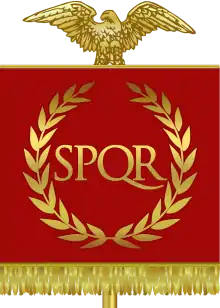
.png.webp)





.png.webp)

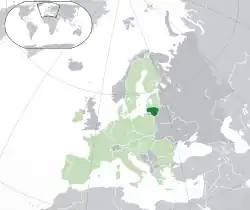







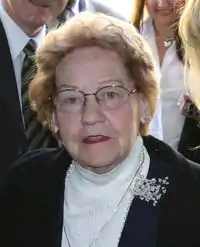
_(2).jpg.webp)


.svg.png.webp)

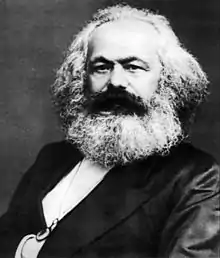

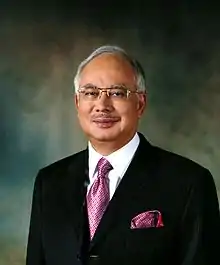

.jpeg.webp)


.jpg.webp)

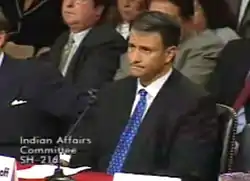

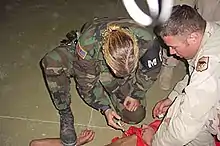


_(cropped).jpg.webp)
